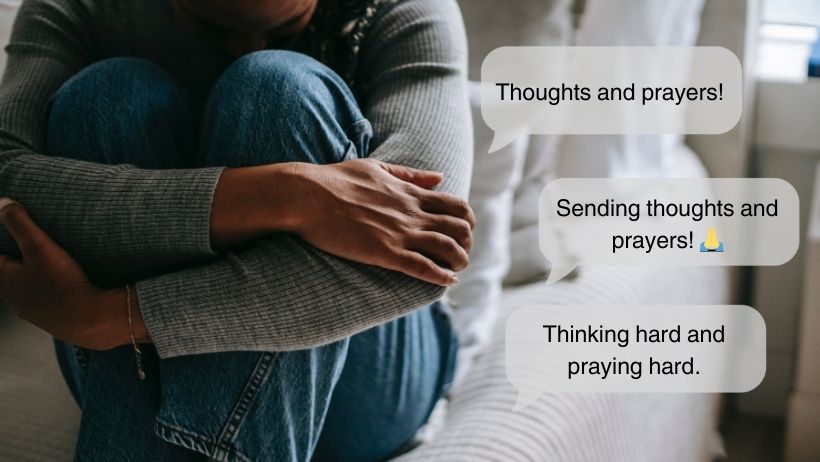“Baruch dayan ha’emet.” Blessed is the true judge. These are the words that we’re told to speak upon hearing of a death. It’s a short, quiet prayer that simultaneously notes that life is fleeting and often not in our own hands, and at the same time, asks for blessings upon the life that has ended. From there, our tradition teaches us that there are steps to take in order to fully honor and respect the body and spirit of the one who has died.

As Jews, we simultaneously take the time to acknowledge our grief as we step into the ritual actions of burial. This is a call to both pray and to act. This one mitzvah (commandment) sums up so much of Judaism; we are people of prayer and we are people who must work to bring forth change. However, when you consider the breadth of our narrative and our subsequent legal texts, those two verbs aren’t necessarily in the same order every time.
Moses learns this lesson in our Torah portion this week. Parshat Beshalach is notable for showing the power of song. We find the children of Israel on their journey out of Egypt into the wilderness. The Egyptians go after them, but God intervenes and saves them. The Israelites continue through moments of bliss and wonder at the new, free world around them as well as moments marking the occasional temper tantrum at God because the journey through the desert isn’t perfect. God provides manna, and the people want more. God provides water, and the people complain that it doesn’t meet their standards.
On their way out of Egypt, the Israelite people are understandably scared. They see the Egyptians following them, there is a sea in front of them, and they freeze in fear. Moses begins to pray, but God stops him. Why? God explains to Moses that there is a time to act and a time to pray. This moment at the sea is a time of action, not prayer. And we know what Moses does: he lifts his arms, and the sea parts. It is only after he takes direct action that it is the appropriate time to pray. It wouldn’t have worked the other way around.
How many times do we see people offering “thoughts and prayers” after tragic events? The Torah this week reminds us that perhaps it should be “actions and prayers.” Yes, we can have both a belief in something greater than ourselves and the imperative to take action to create a world that is a picture of justice and mercy.
– Rabbi Eve Posen
Source: A Time to Pray, a Time to Act – Parshat Beshalach 5784



